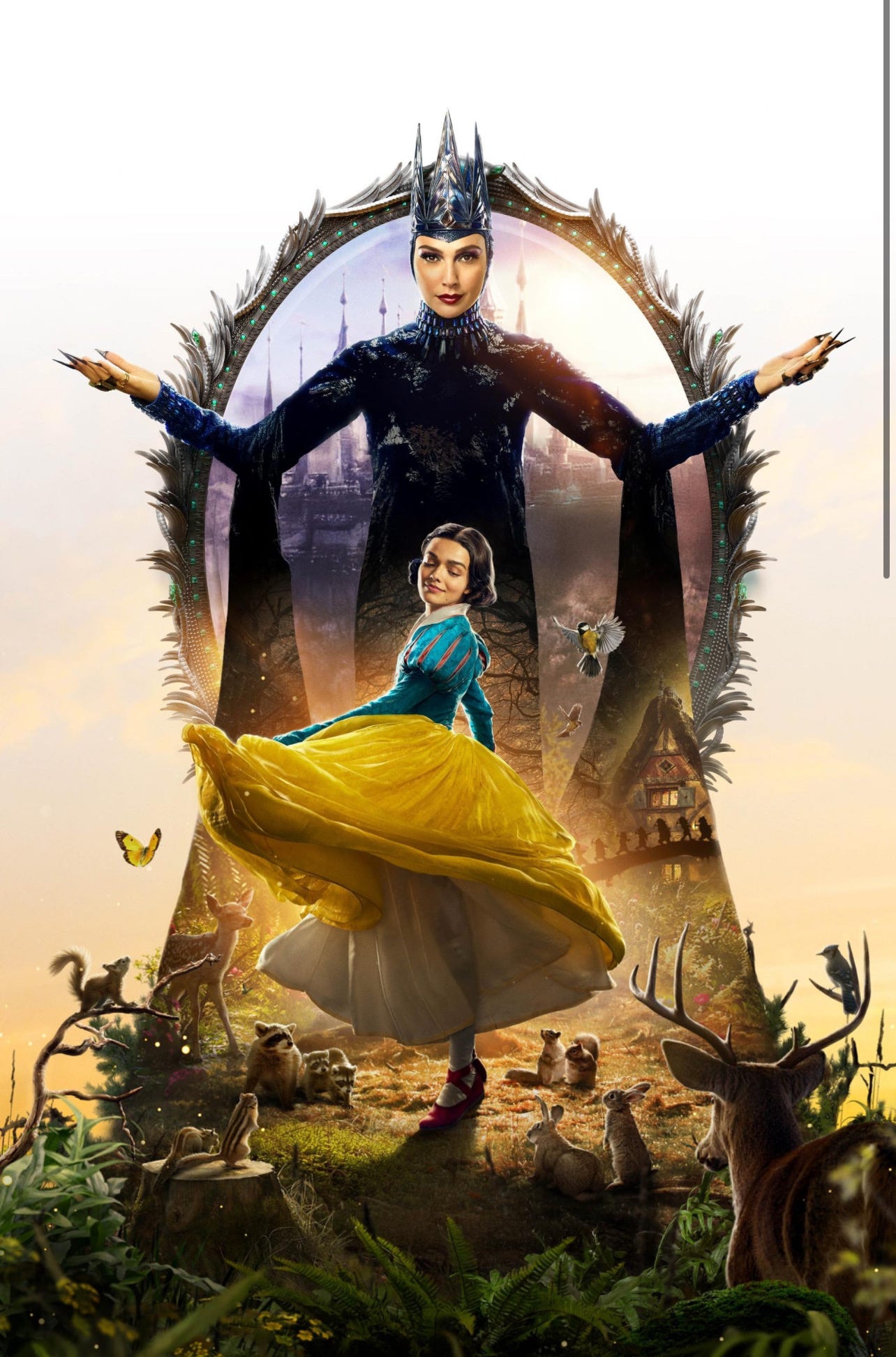Can Disney’s Snow White (2025) Still Function as a Fairytale?
Image source: GAWBY.com
With Disney’s live-action Snow White (2025) on the horizon, much of the conversation has revolved around casting, controversy, and creative liberties. But beneath the surface, there’s a larger question that’s been overlooked: Can this remake still function as a fairytale?
Fairytales endure because they follow timeless patterns—mythic structure, fate, and transformation. If Disney alters these elements too much, Snow White risks becoming just another fantasy adventure rather than a story rooted in its fairytale origins.
Here are three overlooked but crucial issues the film must navigate:
The Absence of a Transformational Space (The Forest as a Lost Symbol)
• Classic fairytales rely on characters entering a liminal space—a mystical, untamed world where they undergo transformation before returning to civilisation. For Snow White, the forest and the dwarfs’ cottage serve as this space, representing both exile and purification.
• But if the remake is about Snow White actively becoming a leader rather than being shaped by fate, then what is the function of the wilderness? If she is already strong, does she even need this space of transformation, or is it just a temporary stop?
• Disney has already removed the traditional dwarfs, replacing them with vague ‘magical creatures,’ suggesting that the forest is no longer an enchanted space tied to mythic transformation, but merely a fantastical backdrop. Without the dwarfs as guardians of labor and innocence, the forest loses its function as a place of purification. Instead, it becomes just another setting for action, shifting the story from a symbolic metamorphosis to a straightforward rise-to-power narrative.
The Death of the Passive Heroine and the Problem of Earned Virtue
• Snow White is one of the last fairytales where the heroine’s virtue is innate rather than earned—she is pure and good by nature, and fate rewards her for it. This is fundamentally at odds with modern storytelling, which demands that protagonists struggle, grow, and prove themselves.
• By making Snow White an active leader, Disney unintentionally removes the story’s moral absolutism—a quality that makes fairytales distinct from standard narratives. In the original, Snow White is chosen to rule because of her innate goodness. In the remake, she rules because she actively chooses to lead.
• This presents a subtle but crucial issue: If Snow White must earn her leadership, then what makes her different from any other aspirational hero? She ceases to be a fairytale figure and instead becomes just another protagonist on a self-improvement arc. The entire reason she was a mythic figure in the first place—her unshakable purity—disappears.
The Vanishing of the Fairytale’s Ritualistic Death and Rebirth Cycle
• Nearly all major fairytales (Sleeping Beauty, Beauty and the Beast, Cinderella) operate on a death and rebirth cycle—where the protagonist symbolically “dies” before returning transformed.
• Snow White’s death via the poisoned apple is a ritualistic transition, marking the moment when innocence is tested by darkness and then restored.
• But if Snow White (2025) is framed as a story of agency rather than fate, then what does her death mean in this version? If she is not defined by purity, then her resurrection loses significance—it is no longer a moment where nature (or the divine) intervenes to restore balance.
• If Disney still includes the poisoned apple sequence, it will likely be reduced to a simple plot device rather than a mythic event. But if they remove it altogether, the film loses the core structure of a classic fairytale—one that relies on death, trial, and renewal as an unshakable storytelling pattern.
While most debates about Snow White (2025) focus on casting, these three elements—the lost transformational space, the shift from innate virtue to earned heroism, and the removal of the death-rebirth cycle—are the real test of whether this remake can still function as a fairytale. If Disney doesn’t navigate them carefully, Snow White won’t just feel different—it might lose the very essence of what made it timeless in the first place.




